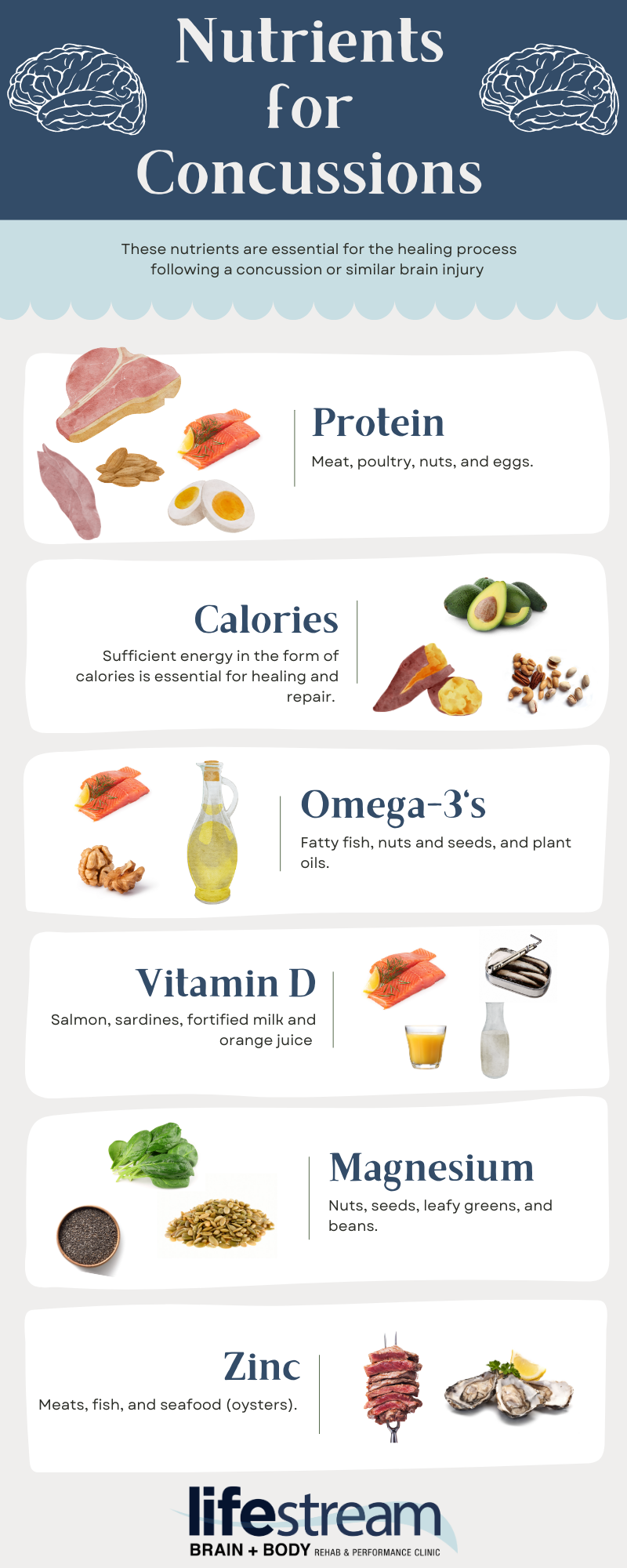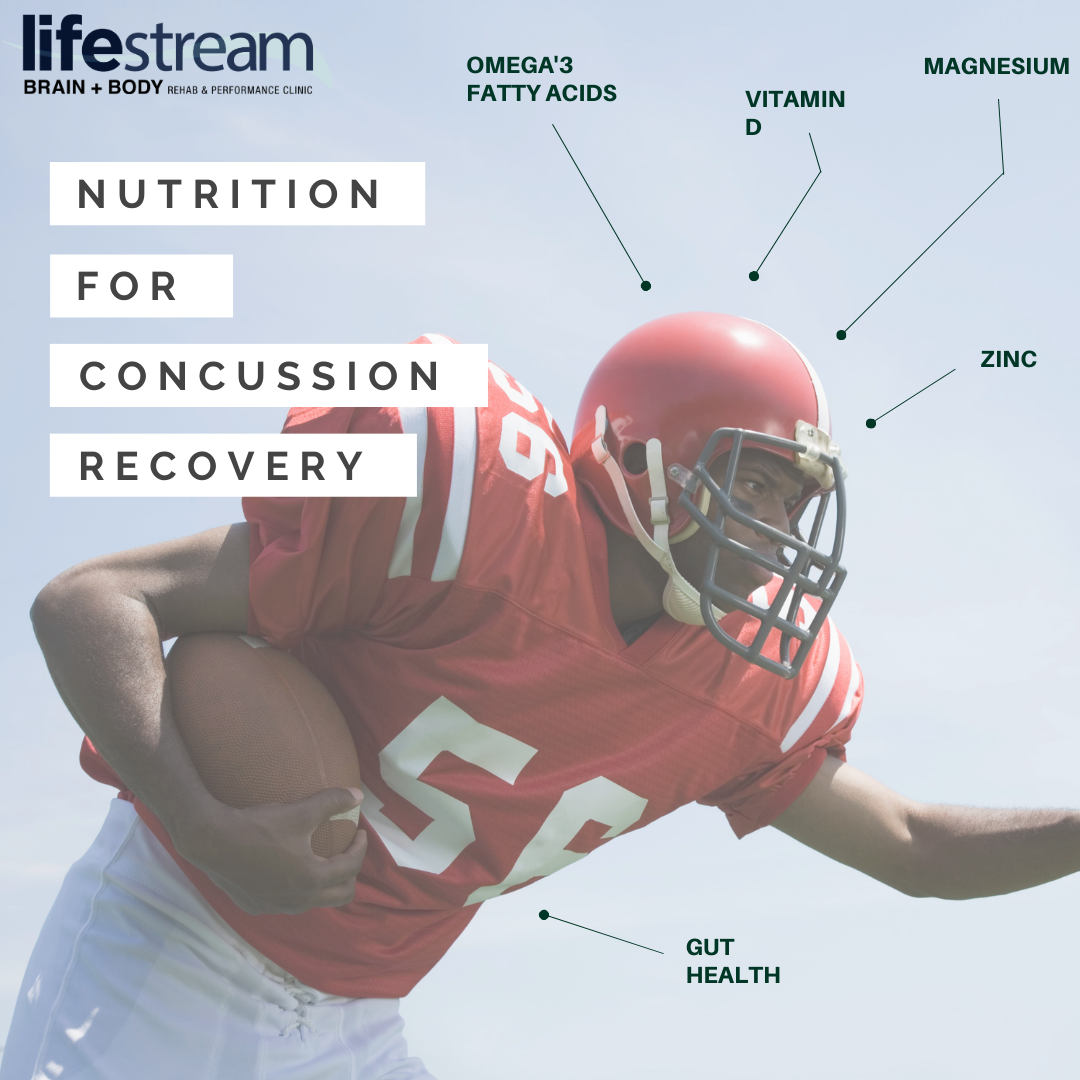Nutrition for Concussion Recovery
Believe it or not, nutrition is not a part of traditional medical treatment for concussions. In fact, Mayo Clinic and Cleveland Clinic say that the main treatment is physical and mental rest, and pain management. No further recommendations are given beyond what is recommended as a healthy diet for all individuals. This blows my mind as the physiological events following a concussion involve a cascade of inflammation and a dramatic increase in the usage of certain nutrients in order to heal the subsequent damage.
Within the first 48 hours of the concussion, blood vessels which are stretched or even torn cause decrease blood flow to the brain which initially causes parts of the brain to become “excited”. This can cause brain cells to die and other injured cells begin to release chemicals that cause inflammation and swelling. Ionic abnormalities in the cells also lead to an increased need for energy in the brain, using almost 40% more glucose than normal in the brain. This increase in oxidative stress and inflammation also increases the need for antioxidants in the brain. These events result in a restructuring process called “brain plasticity”. This is why rest is so important- especially during this period of time following the injury.
– Protein: Since there is damage to the tissue in the body, additional protein is needed to reconstruct and heal the damaged areas. Some studies suggest 25- 88% more protein is needed than normally recommended for adults.
– Gut health: Gut dysfunction is a hallmark issue with brain injuries. Concussions have been found to modify the bacteria in the gut as well as cause functional and structural damage to the gut.
– Omega 3’s: DHA specifically is the main omega 3 fatty acid in the brain. Omega 3’s are anti-inflammatory, help regulate brain plasticity, and are structurally and functionally important in brain cognition and development.
– Vitamin D: Vitamin D deficiency pre-concussion is linked to poorer recovery rates. It is also involved in regulating brain plasticity and offers neuroprotective effects.
– Magnesium: As a part of the initial ionic imbalance in the brain, acute magnesium deficiency occurs. Magnesium is an important mineral which is involved in enzymatic processes in the brain. Magnesium supplementation was shown to improve recovery.
– Zinc: Zinc plays a very important role in the body’s antioxidant systems, as well as offering anti-inflammatory properties.

Sources:
https://www.mayoclinic.org/diseases-conditions/concussion/diagnosis-treatment/drc-20355600
https://my.clevelandclinic.org/health/diseases/15038-concussion#management-and-treatment
https://drantonucci.com/conditions/guide-to-concussion/
https://www.ncbi.nlm.nih.gov/pmc/articles/PMC4479139/
https://pubmed.ncbi.nlm.nih.gov/33582206/
https://www.ncbi.nlm.nih.gov/pmc/articles/PMC9614271/
https://www.ncbi.nlm.nih.gov/pmc/articles/PMC7567897/
https://www.ncbi.nlm.nih.gov/pmc/articles/PMC5491366/

